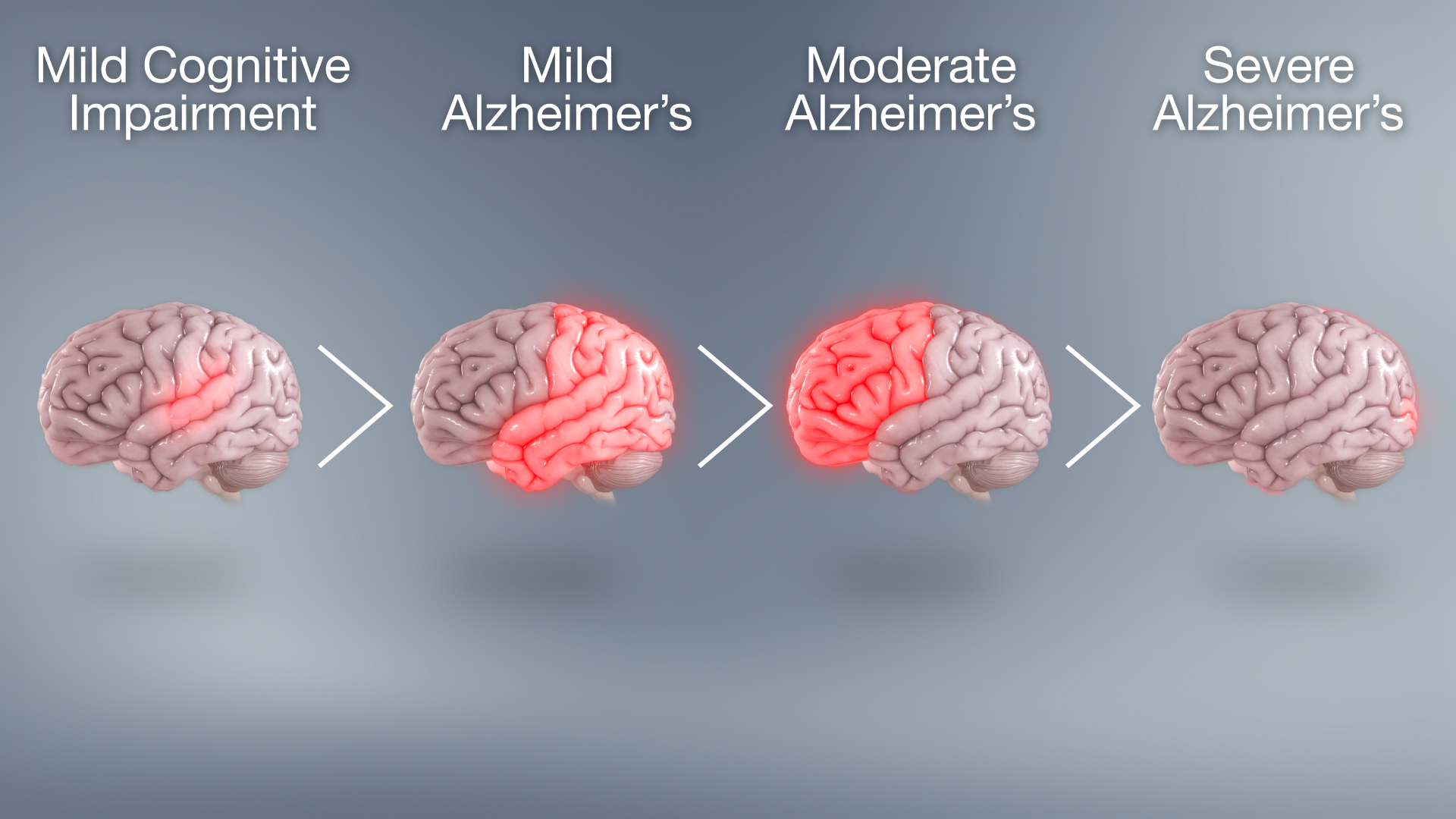Alzheimer’s disease is an outcome of degeneration of neurons in the brain. So an Alzheimer's patient experiences disruption in two major operations- the transmission of electrical impulses within cells and, the activity of neurotransmitters.
Mostly, people with Alzheimer's disease survive for an average of 8 years, but some may live up to 20 years. The course of the disease depends partly on age at which the diagnosis takes place as well as the presence of any other health issue.
Knowing how the condition unfolds can be helpful in managing it. Broadly, the course of Alzheimer’s disease progression can be marked into 3 stages:
- Early stage Alzheimer’s (changes may begin 20 years or more before diagnosis).
- Mild to moderate Alzheimer's stages (2 - 10 years).
- Severe Alzheimer's (1 - 5 years).
It’s important to note that the stages may overlap, making it difficult to place the patient in a specific stage.
As it must be clear by now, Alzheimer’s related changes in the brain begin much before any signs of the disease appear. So before we delve into understanding the stages of Alzheimer’s disease, let’s first talk about what happens before it.
Preclinical Alzheimer’s disease
This is an asymptomatic period that may last for years. Although there are no apparent changes on the outside, PET scan of the brain can identify deposits of amyloid beta protein, which is a hallmark of Alzheimer's disease.
Identification of these early deposits has proved to be very useful in devising new (better) treatments for Alzheimer's disease.
In addition to this, certain biomarkers have been identified that indicate an increased risk of Alzheimer’s disease and also support the diagnosis once the symptoms become evident.
There are also some genetic tests that indicate the risk of early-onset Alzheimer's disease.
Mild Cognitive Impairment (MCI)
Mild cognitive impairment is characterized by mild problems with thinking and memorising. A person in this stage will have
- Memory lapses for easily remembered information, such as conversations, recent events, etc
- Inability to make decisions including judging the amount of time needed for a task, or the sequence of steps needed to complete a task.
Not everyone with mild cognitive impairment has Alzheimer's disease. The same procedures used to identify preclinical Alzheimer's disease can help determine whether MCI is because of it or something else.
When the actual disease begins…
Mild dementia stage
In this stage, the patient is likely to ask the same questions again and again, misplace their belongings, face difficulty in planning and decision making, become either subdued or show uncharacteristic irritability.
Alzheimer's disease is often diagnosed in the mild dementia stage.
Moderate dementia stage
Regions of brain important for thinking, planning and remembering now develop more plaques and tangles. As a result, individuals develop serious problems with memory or thinking that even begin to interfere with work or social life. Things like handling money, expressing and organizing thoughts, become hard. Plaques and tangles also spread to areas involved in speaking and understanding speech as well as those responsible for determining the sense of where your body is in relation to objects around you. This leads to poor judgment, deepening confusion and losing track of time.
Individuals often grow restless or agitated, especially late in the day. Some people may have outbursts of aggressive physical behavior.
Moderate Alzheimer’s stage is, therefore, a risky stage to leave the patient on their own.
Advanced dementia stage
This is the late stage in which most of the cortex is seriously damaged. Widespread cell death causes the brain to shrink dramatically. The individual’s mental function continues to decline, and the ability to communicate coherently is lost.
Later stages of Alzheimer’s disease also have a growing impact on movement and physical capabilities. The patient, by now, requires total assistance with eating, dressing, using the bathroom and all other daily self-care tasks; even walking and sitting.
Muscles usually become rigid and reflexes abnormal. Eventually, a person loses the ability to swallow and control bladder and bowel functions.

Eyes are the Windows to Mind: Early Detection of Alzheimer’s through Eye Tests
Alzheimer’s, the dementia which already raids the lives of over 5 million Americans and is contemplated to soar the number of victims by up to 3 times over the next 3 decades, has no cure. Read More..









